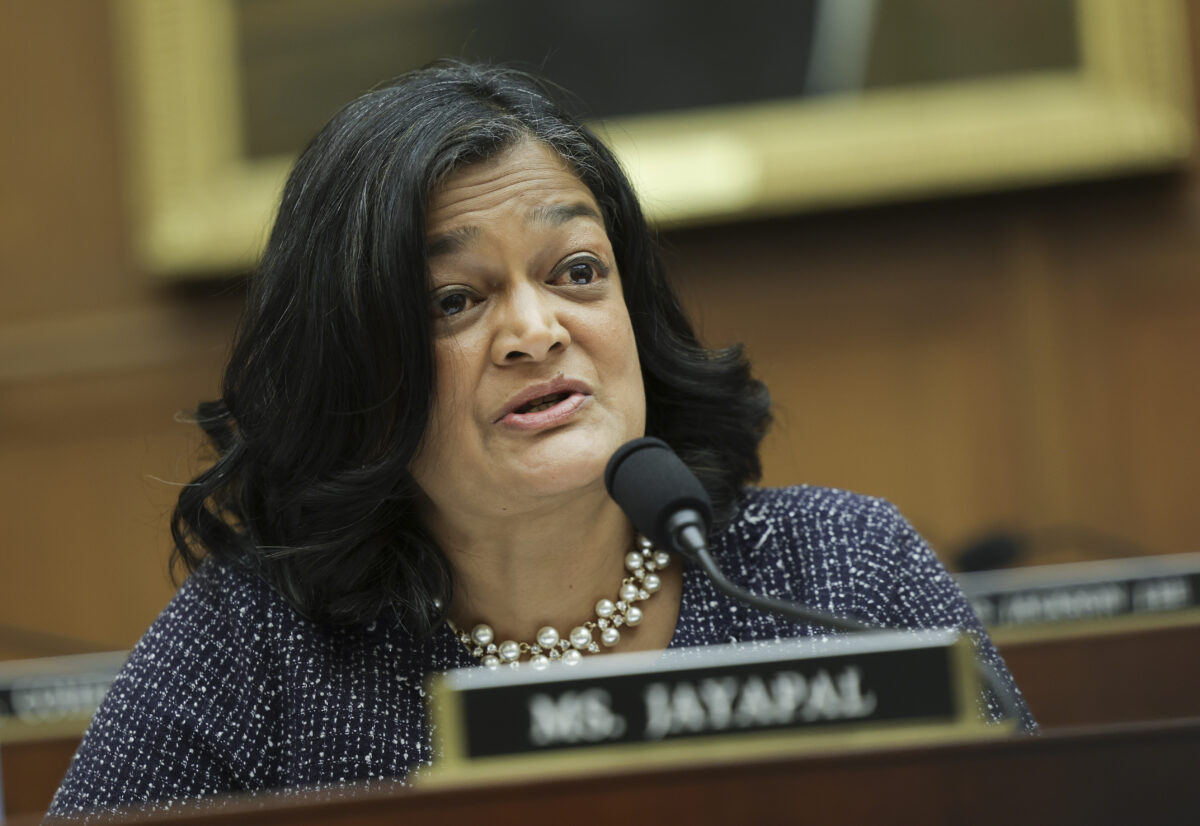
The surveillance powers enjoyed by some federal agencies like the FBI need to be reformed, members of Congress said on May 19 after a newly released ruling showed the FBI repeatedly violated the law and policy in surveilling Americans and others.
“Egregious FISA abuses by the FBI underscore the need for Congress to reform 702 to better protect the civil liberties of Americans,” Rep. Darin LaHood (R-Ill.) said in a statement.
“The abuse of FISA authority detailed in this opinion demands a response from all members of Congress,” Rep. Jerrold Nadler (D-N.Y.), the top Democrat on the U.S. House of Representatives Judiciary Committee, said in a statement.
The Foreign Intelligence Surveillance Act (FISA) enables the FBI and some other agencies to conduct warrantless searches on foreign actors’ cell phone data and communications, among other points of information. Section 702, a provision approved by Congress in 2008, expanded the powers by enabling collection on foreigners even if they’re in the United States.
The law bars targeting Americans, but so-called incidental collection of information on Americans through what critics call “backdoor searches” is allowed.
FBI personnel repeatedly flaunted both FISA and bureau standards outlining when the spy powers can be used, U.S. District Judge Rudolph Contreras said in the ruling.
Issued in 2022 when Contreras, an Obama appointee was presiding over the Foreign Intelligence Court, which oversees FISA utilization, the opinion was unsealed by intelligence officials on Friday.
An FBI spokesperson told The Epoch Times via email that FBI Director Christopher Wray has made clear that “the errors described in the Foreign Intelligence Surveillance Court’s opinion are completely unacceptable” and that the FBI has changed its procedures to “make sure these errors do not happen again,” though violations have kept occurring since, according to the bureau’s own watchdog.
Contreras said that the bureau has implemented changes aimed at reducing the “persistent and widespread” problems complying with FISA and its internal standards.
But if the issues “are not substantially mitigated by these recent measures, it may become necessary to consider other responses, such as substantially limiting the number of FBI personnel with access to unminimized Section 702 information,” he added.
Section 702 requires reauthorization every five years. If Congress does not reauthorize the powers by the end of 2023, then the FBI and 17 other agencies would lose their ability to carry out warrantless searches. Members of Congress have threatened over the years to not reauthorize the surveillance authorities, though they’ve never followed through.
Nadler was among those who said the newly released ruling highlights the need for major changes.
“Section 702 exists only to protect the country from external threats to our national security. The government may only use it to target non-U.S. persons located outside of the United States. If the FBI insists on using it for routine domestic criminal investigations, without a warrant or probable cause, then perhaps they should not have access to this information at all,” the Democrat said. “Without significant changes to the law to prevent this abuse, I will oppose the reauthorization of this authority.”
Rep. Pramila Jayapal (D-Wash.), chair of the Congressional Progressive Caucus, said the revelations from the ruling showed “an outrageous and unacceptable abuse of power,” adding, “We cannot reauthorize FISA without a complete privacy overhaul that prevents the government from warrantlessly spying on Americans.”


Among the abuses outlined in the ruling were improper searches on people suspected of participating in the breach of the U.S. Capitol.
FBI personnel claimed that the searches were expected to turn up ties between the people and foreign powers but the Department of Justice, after analyzing the evidence on which the searches were predicated, disagreed, Contreras said.
The FBI’s own standard for warrantless searches states they must only be carried out if they are “reasonably likely to retrieve foreign intelligence information, as defined by FISA, or evidence of a crime, unless otherwise specifically excepted.”
The FBI also improperly searched for information on people involved in protests and riots in the summer of 2020 and regularly conducted searches from 2016 to 2020 on people listed in local police homicide reports, including victims and next-of-kin, according to the ruling.
The Department of Justice found that both sets of searches violated the FBI’s standard. The bureau disagreed with some of the assessments. Officials maintained, for instance, that querying the victims listed on the homicide reports were reasonably likely to retrieve evidence of a crime simply because the people were killed.
Members of Congress were open to reauthorizing FISA provided reform happens. LaHood, part of the House Intelligence Committee’s Section 702 working group, said the group was working on reforms that would “ensure these types of abuses never happen again.”
But some critics said that no reform would be enough.
“The FBI has shown a penchant for spying on all Americans without a warrant,” Aaron Mackey, the Electronic Frontier Foundation’s free speech and transparency litigation director, told The Epoch Times via email. “The opinion describes shocking abuses of the FBI’s Section 702 powers, and Congress should respond by ending this unconstitutional surveillance.”
Portions of the ruling were redacted, including what intelligence officials described as the implementation of a “highly sensitive technique” that has been used by the National Security Agency to collect information under FISA.
Details of the technique were redacted and must remain classified “to protect sources and methods,” the Office of the Director of National Intelligence said in a statement, alleging that the technique was used on overseas targets and “reasonably expected to result in no incidental collection of U.S. Persons’ communications.”
The Foreign Intelligence Surveillance Court approves on an annual basis proposed FISA querying standards from each agency empowered through the law and approved the sensitive technique after reviewing aspects such as whether the information could be obtained from a communications provider, officials said.



![[GOOD PRESS] ON[GOOD PRESS] ON](https://georgemagazine.com/wp-content/uploads/2024/08/16389056566437433941_2048-300x300.jpeg)
Discount Applied Successfully!
Your savings have been added to the cart.